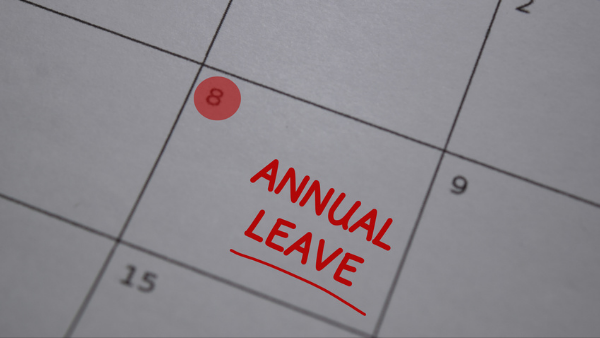Author
Mr G Smith v Pimlico Plumbers Limited UKEAT/0211/19/DA
The employment status of a workforce has various implications for an employer, ranging from the application of IR35 to the obligation to pay holiday pay. The topic of employment status has been the subject of litigation over recent years, particularly relating to businesses within the gig economy where the line between self-employed status and worker status is particularly fine.
Many employers will be familiar with the very recent Supreme Court decision in Uber BV and others v Aslam and others (which we discuss in more detail here and here). The case confirmed that Uber drivers are workers and not, in fact, self-employed contractors, as had been asserted by Uber. As such, they are entitled to certain rights including the right to receive holiday pay.
However, the debate as to whether gig-economy workforces constitute workers or self-employed contractors is not a new one. Prior to the Uber case, there were several Supreme Court judgments on the question of employment status. One such case was Pimlico Plumbers Ltd and Mullins v Smith [2018] UKSC 29, in which it was unanimously decided that a plumber, who was stated to be self-employed in his contract, was in fact a worker.
Background to Smith v Pimlico Plumbers Limited
Mr Smith (the Claimant) was a plumbing and heating engineer who was engaged by Pimlico Plumbers Ltd (the Respondent) for just under six years, until 3 May 2011. During his engagement, the Claimant took periods of unpaid leave. As he was considered an independent contractor by the Respondent, he was not paid any holiday pay. He subsequently initiated a claim for, amongst other things, holiday pay, on 1 August 2011.
Following from the Supreme Court decision that he was a worker, his claim for holiday pay was dismissed as out of time by the Employment Tribunal on the basis he had not brought it within the three month statutory time limit. This meant that he was required to bring the claim within three months from the date on which payment for the leave should have been made. It was a finding of fact that this payslip would have been dated 5 February 2011 and, therefore, the claim for holiday pay should have been submitted by 4 May 2011.
The Claimant appealed to the Employment Appeal Tribunal (EAT) and relied on a case called King v Sash Window Workshop (C-214/16) [2018] ICR 693 (King). If King did apply, it would mean that the three month time limit instead commenced from the date of termination (i.e. 3 May 2011) and would, as a result, expire on 2 August 2011.
What does King v Sash Window Workshop say?
Under section 27(1)(a) Employment Rights Act 1996, where an employer makes unlawful deductions from a worker’s wages, an Employment Tribunal can look back no further than two years from the date of the complaint. In addition, the claim must be initiated within three months of the date on which the contested payment should have been made.
The claimant in King was a commission-only salesman. He received no salary and was never paid for any annual leave. On the termination of his employment, he brought various proceedings against his alleged employer, including for unpaid holiday pay. His claim was that he had never taken his full annual leave entitlement because it would have been unpaid.
It was subsequently held that the claimant was a worker and, consequently, entitled to holiday pay. The European Court of Justice (ECJ) held that, if a worker has not taken some or all of their holiday entitlement because their employer refuses to pay them (e.g. because they wrongly believe that the person is self-employed), the worker is entitled to say that they have been prevented from exercising their right to paid leave. In these circumstances, the leave is carried over until the worker has the opportunity to exercise that right, or until termination.
As such, the normal two year time limit to claim for unlawful deductions from wages (set out above) does not apply. The worker can instead claim for the amount equivalent to their unpaid holiday pay for the entirety of their employment. For further information on this case, please see our article here.
What did the EAT hold in Smith v Pimlico Plumbers Limited?
The EAT held that the Claimant was not entitled to rely on King. It was a finding of fact that he had not been deterred from taking annual leave. Instead, he had taken leave, but not been paid.
This was a fundamental difference to the King case and, essentially, had the effect that the claim was for unlawful deduction from wages and not a claim relating to the right to take annual leave under the Working Time Regulations.
The distinction is that the legislation regarding unlawful deductions from wages stems from the worker taking holiday but not getting paid for it. In contrast, the paid annual leave entitlement revolves around workers who have not taken annual leave because they have been led to believe that it will not be paid. A right to annual leave claim can be brought within three months after termination of the employment contract.
This therefore meant that the Claimant’s claim for holiday pay was out of time.
What does this mean for employers?
This decision should come as a welcomed clarification for businesses who engage independent contractors. Even with the best will in the world, businesses are often conscious of the risk that contractors could be subsequently deemed a worker by an Employment Tribunal and the liabilities this could introduce.
Provided that contractors do take unpaid leave, any potential liability for holiday pay will continue to be limited under the jurisdictional restrictions set out above (including the fact that the alleged deductions must be within the period of two years ending with the presentation of the claim).
Often the largest risk surrounds contractors who regularly accept work from the same business and carry out very little (if any at all) work for other clients. Businesses may wish to confirm to contractors that unpaid leave is permissible in the hope that this encourages such leave to be taken.
This article is for information purposes only and is not a substitute for legal advice and should not be relied upon as such.
Print article

